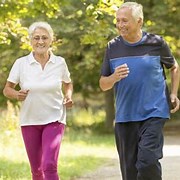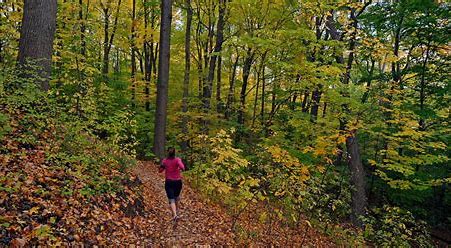What makes you put on your running shoes or active wear? Is
it wanting to stay healthy? The satisfaction of seeing your step count
increase? A desire to drop some kilos or build more muscles?
Perhaps for you exercise is more of an obligation, something
you know you should do but don’t particularly love. As Kelly McGonigal,
research psychologist and author of The Joy of Movement puts it, you see
exercise as “punishment for enjoying life.”
Mindset reset
McGonigal believes many of us have developed the wrong
attitude to exercise and movement. “Movement is a fundamental part of being
human,” she says, so “don’t exercise from a place of shame or fear.”
She argues that rather than a chore, exercise is integral to
enjoying your life. People who are physically active report being more
satisfied with their lives and experience more gratitude, love and hope and
less loneliness and depression.
The powerful effect of exercise on the brain leads to a wide
range of psychological benefits. Here are three of them:
- You connect more to others.
Exercising with others is one way to increase a feeling of
connection – and not only because you are spending time with each other.
It’s all down to brain chemistry. Research shows that the
‘exercise high’ is linked to a class of brain chemicals called endocannabinoids
(the chemicals mimicked by cannabis), which can reduce anxiety and increase
feelings of optimism. They also increase the pleasure we get from being around
other people, helping to strengthen relationships.
- You become more sensitive to joy.
“When you exercise, you provide a low-dose jolt to the
brain’s reward centres – the system of the brain that helps you anticipate
pleasure, feel motivated, and maintain hope,” says McGonigal. Over time,
regular exercise leads to higher circulating levels of the brain chemical
dopamine, which relieves depression, helps you become more resilient to stress
and expands your capacity for joy.
- You can transform your
self-image.
If you have a voice in your head telling you that you’re too
old, too unfit, or too weak to exercise, the sensations you feel when you move
can provide a powerful counterargument. Moving with power, grace or strength
can change how you feel about yourself and what you are capable of, a feeling
that can transfer to your daily life.

Your roadmap to becoming more active
1. Look for ways to allow physical activity to play a bigger
role in your life.
Don’t think about durations or intensities. Instead, find an
activity that suits you by thinking about what you already love. If you enjoy
spending time with friends or family, go to gym class together or arrange a
weekly walk. If you love dancing, go to a dance-based class or try out ballroom
dancing.
2. Make your first goal achievable.
If you’re new to exercise, start small – even 10 minutes of
exercise is beneficial, but the more you do, the greater the physical and
mental benefits.
3. Move outdoors.
Many people report an immediate boost from exercising
outdoors. Any green space will do, it doesn’t have to be a long bushwalk.

“Every decade, adults lose up to 13 per cent of the dopamine
receptors in the reward system. This leads to less enjoyment of everyday
pleasures, but physical activity can prevent the decline.”
Kelly McGonigal